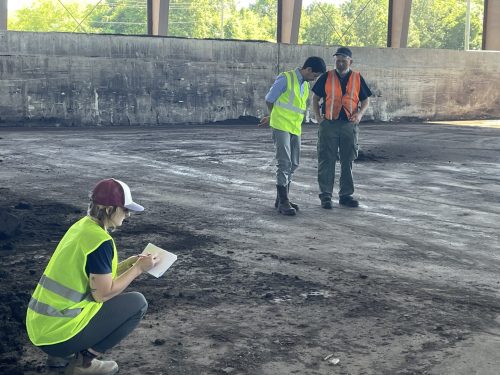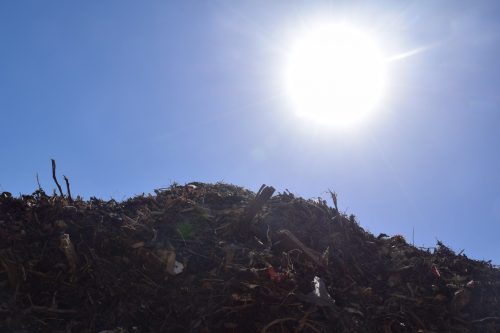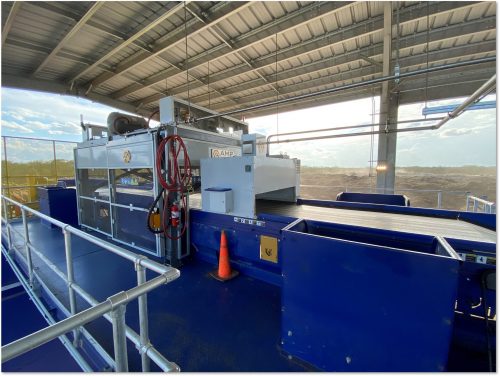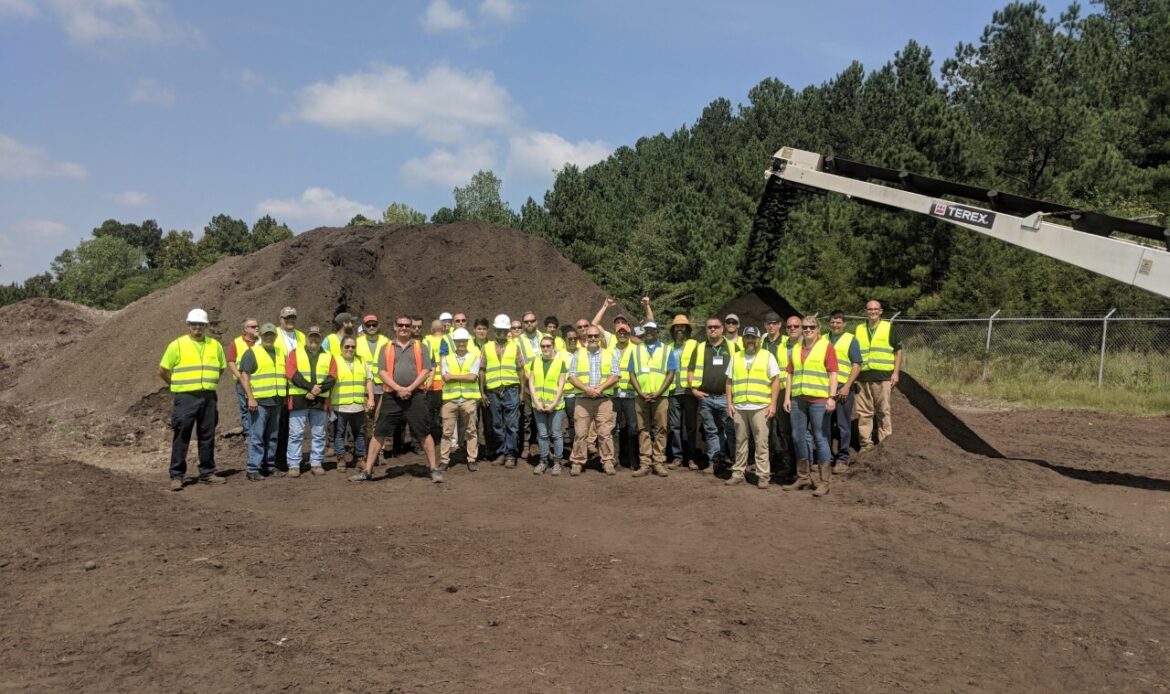Compost has many different meanings to people. Ask a few strangers on the street “What is compost” and you’ll get a wide range of answers. As the awareness around home gardening and self-sustainability grows, the interest in compost does too since it is an often-used word in these circles
The reality is, however, that not all compost is created equal. If you’re just starting out, backyard compost is a great place to begin. ANY effort to divert food waste from landfills is incredibly helpful for protecting our planet and furthering the mission of sustainability! However, understanding the difference between backyard compost and Atlas Compost can help you further see why quality, testing, and control matter in the long run.
The three major differences in commercial composting and do-it-yourself or backyard composting are testing, time, and technology.
Testing is important for all compost, just like testing your soil should be the first step for any soil amendment plan, however at Atlas, ours is a much more stringent testing regiment. With our ability to take such an extensive range of food wastes at several locations, including cooked food, meat, and dairy, as opposed to backyard composting that can really only handle raw scraps (as far as food scraps go), we’re committed to extensive testing and monitoring to ensure the quality of our compost. Our composting method, Extended Aerated Static Pile (EASP), is much faster, hotter, and more effective than a backyard pile.
Atlas is also leading our industry in utilizing technology to have a higher quality and more consistent end product. Since its inception, Atlas Organics has been committed to bringing the highest quality product to the market. Furthermore, we’re required to record and report data to compost regulators of the state/local region, and we voluntarily report them for the STA (Seal of Testing Assurance) certification!
TESTING

1. STA (Seal of Testing Assurance) Standards & Why That Matters
At its core, STA standards can give consumers the assurance they want concerning the quality of the compost. STA certified compost must meet rigorous standards including the EPA (Environmental Protection Agency) testing limits for heavy metals and pathogens, pH, soluble salts, specific nutrients, moisture, organic matter, and more. Check out the full list HERE.
Adhering to STA standards also puts the information in the consumers’ hands so they can use the right compost in the right way to meet their specific needs.
Compared to backyard compost, which is not often tested nor made with specific uses in mind, the products made by Atlas Organics can be trusted to meet your needs!
2. Third Party Testing
At Atlas, we’ve made a point to only deliver the highest quality product which starts at the feedstock (accepted items at our locations) and extends throughout the entire production process. From testing to controlling contaminates and more!
In general, we have our finished compost tested for plant nutrients, NPK as well as the other macronutrients needed in smaller amounts, metals, moisture, bulk density, pH, organic matter, organic carbon, electrical conductivity (which gives a measurement for soluble electrolytic salts) and C:N ratios. We also do pathogen testing (fecal coliform & salmonella), germination testing, stability testing, and sieve tests to see the percentage of particle size breakdown. Lastly, a contaminant test is run which quantifies contaminants (glass, plastic, etc.) found in the compost sample.
Another aspect of testing is to make sure we’re not sending out something with high pathogenic potential or with a high quantity of a nutrient/metal that is harmful in high quantities. These could be anything from metals to producing a salt-heavy compost that could inhibit plant germination. This is a huge way in which Atlas Compost differs from backyard compost or other lower-quality products.
Testing can also provide information for determining the “best use” of the compost since different compost specs are best used in different areas. For example, a larger-sized compost is best for use as a mulch or construction-based project (environmental restoration, DOT projects), really fine compost is best for lawn or turf application, and a higher nutrient or higher organic matter compost will be best for food or ornamental gardens. As you can see, the compost parameters really dictate best consumer use.
When creating your own compost it can be much more difficult to control sizing, pathogens, and other important details!
3. The Importance of Solvita Testing
One specific test that puts Atlas Compost a head above the rest is Solvita. This test is done in the field vs other tests that are done in a lab. This is some of the rawest data you can get since there is no lag time between sampling and data collection. Solvita measures CO2 and NH3. Too much CO2 and your compost isn’t finished yet. Too much NH3 and your pH is too high, you’re losing valuable nitrogen, and the high pH, affected C: N ratio, and loss of N can cause issues with plants planted into the compost-amended soil.
These types of tests give data that allow our customers the ability to trust Atlas Organics for any project, knowing that we’ve gone through extensive measures to guarantee the quality of our products!
TIME

One of the major ways that Atlas Compost is different from the compost pile in your backyard is the time it takes.
Backyard composting piles can take anywhere from 6-12 months to completely breakdown. There are three main stages to this process, and each takes extensive time. Stage 1 consists of the breaking down of materials into smaller pieces. Stage 2 consists of the breaking down of proteins, fats, and complex carbohydrates. Lastly, stage 3 consists of cooling and maturation. During this process you are responsible for the turning of the pile to increase oxygen and making sure the components added are the correct amount of green and brown materials.
Atlas composting looks a little different! Our process takes 45-60 DAYS from start to finish. We utilize Extended Aerated Static Pile (EASP) composting systems engineered by O2 Compost. With EASP composting, fresh air (i.e., oxygen) is blown into the pile under positive pressure to maintain aerobic conditions throughout the pile, eliminate the need for pile turning, accelerate the decomposition of the organic waste material, achieve pathogen reduction requirements, and prevent generation of offensive odors.
Throughout our process the material is monitored through various quality control methods including Solvita, bulk density test, temperature monitoring, and moisture monitoring through a batching protocol. This ensures the end product is not only of the highest quality but also much more consistent.
TECHNOLOGY

Our EASP composting method and team of experts take Atlas Compost to the next level. Atlas uses the most state-of-the-art technology in the industry to ensure our compost is free of contaminants, weed seeds, and pathogens. We also utilize an AI technology called NOCRAP, which stands for Non-Organics Contamination Removal Automated Process, at multiple Atlas locations. This system recognizes items on a conveyor belt based on their visual characteristics and then uses arms with suction cups to pull the items off the belt.
Atlas Organics has also introduced the Extended Aerated Static Pile (EASP) Modular Unit, a fully remote and off-the-grid system. The unit is designed for small organic waste generators. A low cost, reliable solution for large metropolitan areas as well as rural municipalities with limited resources. The Modular Unit comes with a newly developed aerated control system with remote monitoring capabilities. This allows operators to see and communicate with the unit while away. Simplified tracking and reporting help you to focus on day-to-day operations. Atlas is leading the way in creating composting opportunities for areas of all sizes through this technology.
Atlas is committed to advancing the organic waste industry through technology and constantly seeking out new ways to create containment-free, high-quality compost for residential and commercial customers of all sizes. We also recruit the best in the business to work with us in advancing the Atlas mission. Our compost products and our sites are regularly inspected by our rigorous engineering team to ensure both internal and external standards are being met.

